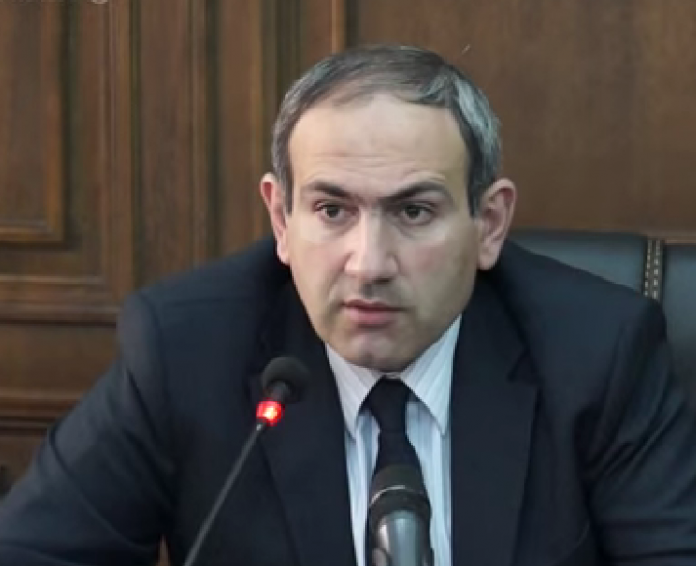The European Union has called on Armenian authorities to fully respect the right to exercise freedom of assembly in a peaceful manner.
“All those who have been detained while exercising their fundamental right of assembly in accordance with the law must be released immediately,” read a statement issued by Maja Kocijancic, the spokesperson of the High Representative of the European Union for foreign affairs and security policy, on April 22.
The spokesperson was referring to Armenian opposition leader Nikol Pashinyan, who was “forcibly taken” by police following a meeting with Armenia’s new PM Serzh Sarksyan.
As reported by The Guardian, Armenian police detained Pashinyan as protests against Sarksyan’s appointment as prime minister entered a 10th day. Critics argue Sarksyan is clinging to power following a decade as president.
Police said Pashinyan was forcibly taken from a rally in the capital on April 21, shortly after Sarksyan rejected demands to step down. Nearly 200 protesters were detained.
“This is not talks, not a dialogue. It’s just an ultimatum, blackmail of the state, of the legitimate authorities,” Sarksyan reportedly told Pashinyan.
“No one has dared and will dare speak to us in the language of threats. I am telling you, you have no understanding of the situation in the country. The situation is different to the one you knew 15-20 days ago,” Pashinyan replied to Sarksyan.
As an MP, Pashinyan is protected by a parliamentary immunity and cannot be arrested without its approval, according to the constitution.
In an article published by Al Jazeera, Anna Ohanyan, professor of political science at Stonehill College in the United States, noted that removing Sargsyan as prime minister has been the main demand of the protests, but their importance goes beyond that. “It is about preserving democratic institutions and resisting budding authoritarianism.”
“This recent wave of mass civil disobedience is only the latest in a long record of peaceful protests over the course of a decade or so,” wrote Ohanyan, who participated in a Fulbright Fellowship to Armenia several years ago. “Armenia has become a laboratory of peaceful resistance and civil society in an increasingly authoritarian part of the world.”

